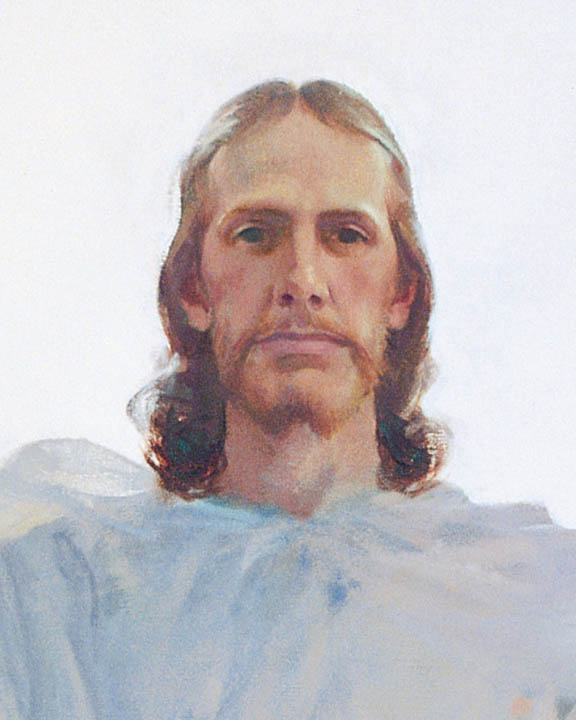Protestants, especially Evangelical Protestants, often ask other people whether they are “saved.” Members of The Church of Jesus Christ of Latter-day Saints, sometimes erroneously called Mormons, might not give a quick answer to this question, leading some to believe that Mormons really don’t know if they are saved. Hopefully, this article will explain their hesitation.

 Because members of the Church of Jesus Christ have more scriptures and modern prophets to enlighten them, they have more information about salvation and exaltation than friends of other faiths. They also have a vocabulary to explain this knowledge. While Protestants may view “salvation” as going to heaven instead of hell, Mormons have a view of the “spirit world,” where we go after death to await resurrection and judgment, and the “degrees” of glory in heaven to which we may be exalted. So salvation to Mormons is a more complicated subject, especially when exaltation enters the mix.
Because members of the Church of Jesus Christ have more scriptures and modern prophets to enlighten them, they have more information about salvation and exaltation than friends of other faiths. They also have a vocabulary to explain this knowledge. While Protestants may view “salvation” as going to heaven instead of hell, Mormons have a view of the “spirit world,” where we go after death to await resurrection and judgment, and the “degrees” of glory in heaven to which we may be exalted. So salvation to Mormons is a more complicated subject, especially when exaltation enters the mix.
Salvation is Free
Mormons believe that nearly everyone will inherit a kingdom of glory in heaven, even some people labeled very wicked for their crimes on earth, and even many who reject the gospel of Jesus Christ. In the Book of Mormon: Another Testament of Jesus Christ the following scripture is found:
And thou hast beheld in thy youth his glory; wherefore, thou art blessed even as they unto whom he shall minister in the flesh; for the Spirit is the same, yesterday, today, and forever. And the way is prepared from the fall of man, and salvation is free (2 Nephi 2:4).
But note this second scripture:
Hath he commanded any that they should not partake of his salvation? Behold I say unto you, Nay; but he hath given it free for all men; and he hath commanded his people that they should persuade all men to repentance (2 Nephi 26:27).
Here, a condition is added, and that leads to the subject of exaltation after one is saved.
Salvation Means Many Things
Salvation to Latter-day Saints does not just mean going to heaven. It means many things, because of the eternal and perfect atonement of Jesus Christ.
Salvation from physical death — Because of the fall of Adam, all of us will die. At death, our spirits separate from our bodies, and our bodies moulder in the ground. That would be our final state, if the Savior had not atoned for our sins and become the “first fruits” of the resurrection. Because of Him, we are saved from physical death. All, both the righteous and the wicked, will be resurrected to perfect, immortal bodies.
Salvation from spiritual death — Because of Adam’s fall, and because of our own sins, we are separated from God spiritually. Because of the atonement of Christ, we can be spiritually connected to our Father in Heaven once again. Christ’s atonement takes away our sin (on conditions of repentance) and enables us to return to the presence of the Lord someday. Those who do not repent must suffer for their own sins:
“For behold, I, God, have suffered these things for all, that they might not suffer if they would repent; But if they would not repent they must suffer even as I; Which suffering caused myself, even God, the greatest of all, to tremble because of pain, and to bleed at every pore, and to suffer both body and spirit—and would that I might not drink the bitter cup, and shrink—” (Doctrine and Covenants 19:16-18).
Salvation from suffering — The Lord Jesus Christ saves us from suffering both on earth and in heaven. On earth, we can call upon His grace in times of trouble, when we are confused, when we are ill or heavily burdened, and He will bring us peace and give us the strength to carry on. Christ took upon Himself the wrath of God for our sins, so that we might not have to suffer for our own sins in the afterlife, but His atonement is of no avail to us unless we believe on His name and repent of those sins.
The Difference Between Salvation and Exaltation
Joseph Smith and Sidney Rigdon beheld a vision of the kingdoms of heaven. In the Bible, we have a few verses from Paul regarding bodies celestial, terrestrial and telestial…
There are also celestial bodies, and bodies terrestrial: but the glory of the celestial is one, and the glory of the terrestrial is another. There is one glory of the sun, and another glory of the moon, and another glory of the stars: for one star differeth from another star in glory. So also is the resurrection of the dead (1 Corinthians 15:40-42).
The revelation of Sidney and Joseph expands upon Paul’s statement one hundred-fold. The Celestial kingdom is the highest kingdom of heaven, and is as the glory of the sun; the Terrestrial kingdom is next. Though Christ dwells in the Celestial realm, He administers to those in the Terrestrial kingdom, along with others who have been exalted to that kingdom, compared to the glory of the moon.
The Telestial kingdom is the lowest kingdom of glory, compared to the glory of the stars. The Telestial kingdom receives the administration of those in the Terrestrial kingdom. Christ, being pure, does not visit the Telestial kingdom. People who reject the gospel of Christ on earth, and then reject it again when it is presented to them in the spirit world after death, inherit the telestial kingdom. Others who will dwell in this kingdom include “… they who are liars, and sorcerers, and adulterers, and whoremongers, and whosoever loves and makes a lie” (Doctrine and Covenants, Section 76:103). They have suffered for their sins in the Spirit World, and will not be resurrected until after the millennial reign of Christ. Nonetheless, Sidney and Joseph saw that the glory of this lowest kingdom of heaven “surpasses all understanding.”
Since the lowest kingdom of heaven includes very sinful people, even those who have rejected Christ, and since this kingdom is still so glorious, then the people who inherit this lowest kingdom also are “saved.”
Most Mormons are not thinking about this kind of salvation. They have set their sights on the highest kingdom of heaven, the celestial, and the highest realm of that kingdom. The Lord has termed this kingdom “eternal life,” and it means to dwell eternally in God’s presence, sealed to our families and into His family, as well.
God has said that the path to exaltation is narrow, “and few there be that find it” (Matthew 7:14; 3 Nephi 14:14). In order to return to God’s presence there are ordinances to enter into, and one must be faithful to those covenants he or she has made with the Lord. Ordinances must be performed by those with the proper authority and the power to act in God’s name. Those who desire to return to the full presence of God enter into a process of purification that lasts a lifetime, as they seek to emulate the Savior Jesus Christ.
